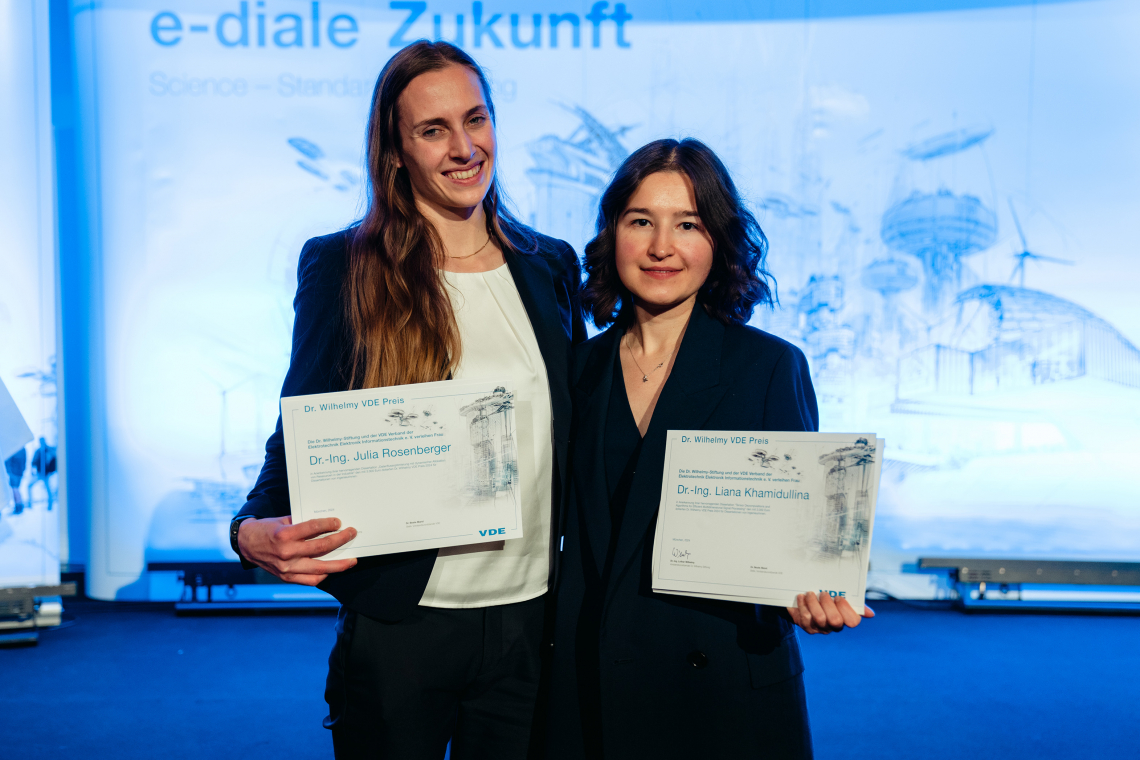The Dr. Wilhelmy VDE Prize for young female scientists, awarded annually by the Dr. Wilhelmy Foundation and the VDE, goes to two female electrical and information technology engineers this year. The award, endowed with €3,000 each, gives outstanding dissertations greater visibility.
Dr. Liana Khamidullina completed her doctorate at the Faculty of Electrical Engineering and Information Technology at TU Illmenau and dedicated her dissertation to the topic of signal processing. In many applications, data has a high-dimensional structure and relying on matrix-based, two-dimensional approaches leads to a loss of information. Liana Khamidullina defined various applications for her dissertation in order to demonstrate the advantages of multidimensional, tensor-based processing and to develop powerful algorithms for this purpose.
For medical applications such as EEGs, Khamidullina has developed a model based on data fusion that is able to process information from numerous sensors simultaneously. This increases accuracy and makes it easier to detect errors - for example due to poorly positioned sensors or patient movements during recording.
Dr. Julia Rosenberger completed her doctorate at the University of Duisburg-Essen and dealt with the processing of industrial data flows in her dissertation. The focus was on the problem that vast amounts of data are processed in industrial plants and at the same time it is often not possible to invest in expensive hardware for this. She demonstrated ways in which data flows can be handled in a software-based and therefore economical way. She evaluated various approaches in a simulation and demonstrated their interaction in an overall system. Rosenberger used compression algorithms that are already available for processing data in order to further develop them for processing data flows. She focused on filtering out relevant information - i.e. anomalies - from the continuous data flow at an early stage and thus reducing the amount of data to be transmitted. In order to make the best possible use of limited hardware performance for all tasks, it has adapted concepts from machine learning. This continuously identifies IoT devices that are not working at 100% capacity so that they can be used for data processing with sufficient bandwidth.


